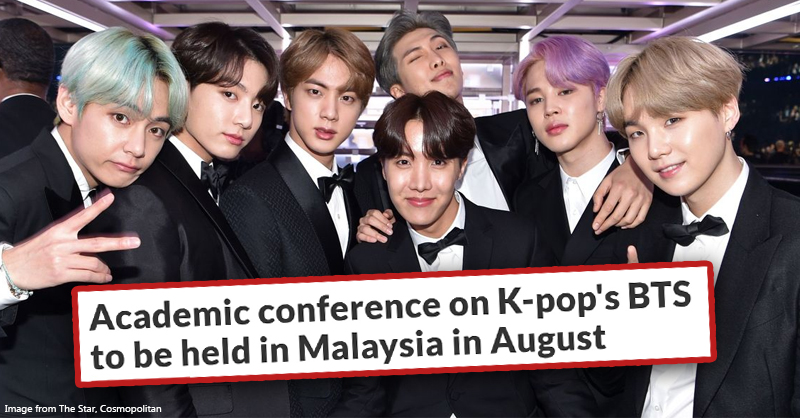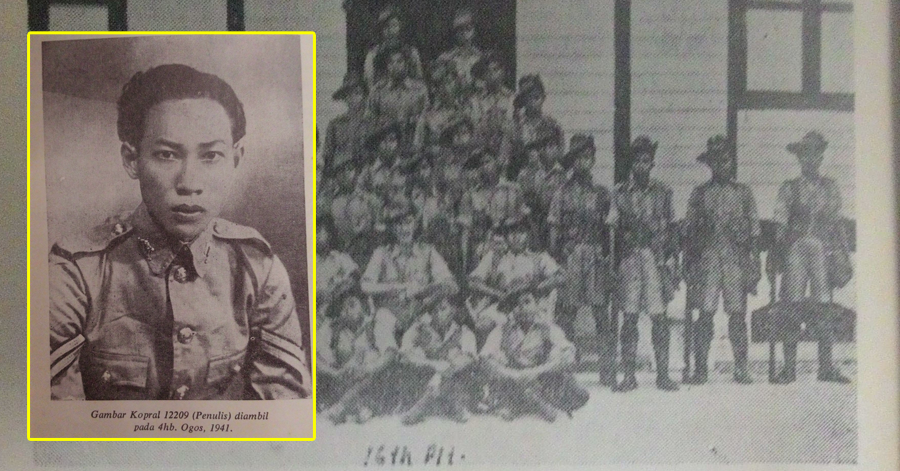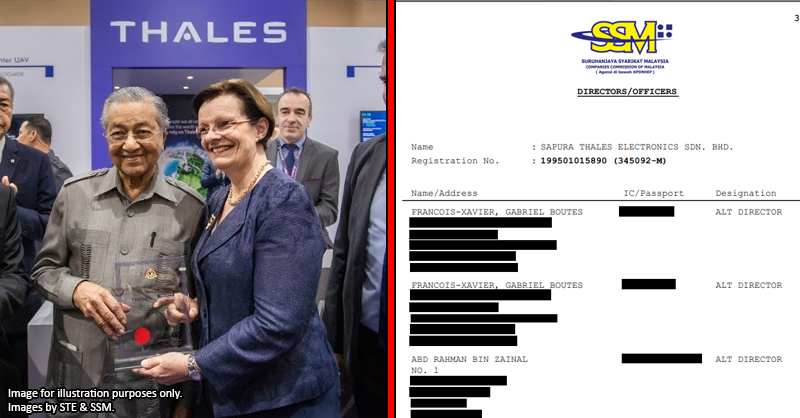Armed Forces wants more non-Malays to join, but two veterans share why it would be difficult
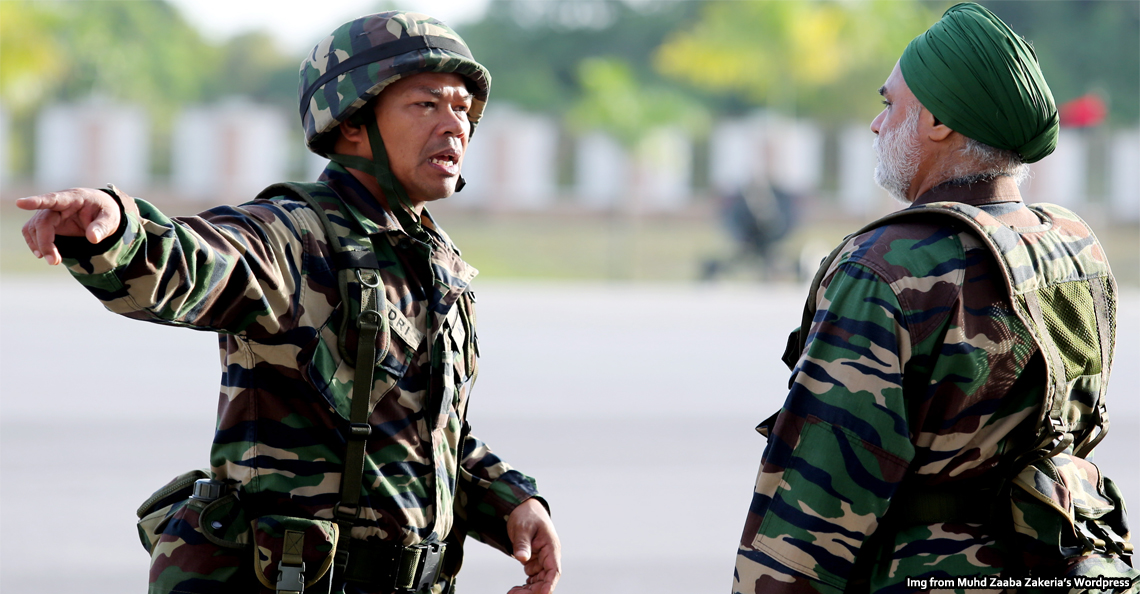
- 3.1KShares
- Facebook2.8K
- Twitter26
- LinkedIn57
- Email69
- WhatsApp164
The Malaysian military has, for a few decades now, been made up of mostly Malays. But they want to change that soon.
In recent news, Angkatan Tentera Malaysia (ATM) chief Raja Mohamed Affandi Raja Mohamed Noor said that the ATM wants to see more recruits of the other races join the military, and they’re planning to increase their participation by 10% each year. He also wished for more members of various races to consider enrolling in the Royal Military College (MTD).
“The involvement of other races in the ATM is so we can share the responsibility of defending the sovereignty of the nation. So we are seeking 10% participation of youths from various races to join as members of the armed forces and enrol in MTD,” – Raja Mohamed Affandi Raja Mohamed Noor, Armed Forces chief, for FMT.
However, he admitted that it will be an uphill battle to get that 10% as social trends have changed, and joining the army is no longer a top choice among non-Malays. However, Raja Mohamed Affandi was confident that it could be done with the support of relevant parties and the media.

While the move was met with approval by the National Association of Patriots (PPK), there is doubt of whether the other races would even be interested in joining the military. This isn’t the first time such a move had been initiated, and judging by the recent move, the previous efforts didn’t work.
“The problem is that it is quite difficult to get the other races to join the military. It is something that even I do not know why. We’ve been encouraging the Chinese and Indians to join in the military but they themselves don’t seem to be interested.” – Brig-Gen (Rtd) Mohamed Arshad Raji, PPK President, for FMT.
Why is it so hard to get non-Malays to join the armed forces? That had been the pressing question by the recruiters for a while now, so we did some research and spoke to some Malaysian army veterans to find out why. We’ve discovered that the issue is more complex than it seemed in the beginning, but…
It had something to do with certain preconceptions about military jobs
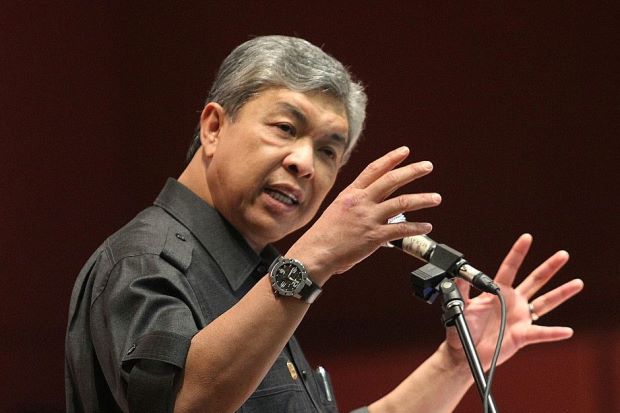
The participation of other races in the military had been a long-standing issue, and back in 2010 the then Defence Minister Datuk Seri Dr Ahmad Zahid Hamidi had revealed that less than 1% of the new recruits for 2008/2009 are Chinese and Indians, even with activities promoting careers in the military being carried out in public and private institutions. He had stated several reasons for the low rate of recruitment for other races such as:
- Concern over strict discipline imposed in the military.
- Lower returns (read: gaji) compared to private sector jobs.
- Lack of encouragement from the families.
- Negative perception towards the army.
He had also cited a lack of patriotism among the non-Malays as a reason for the low recruitment, but we won’t be getting into that. We checked out the other four points, however, and here’s what our veterans have to say about them.
Strict discipline, and also limited career options.
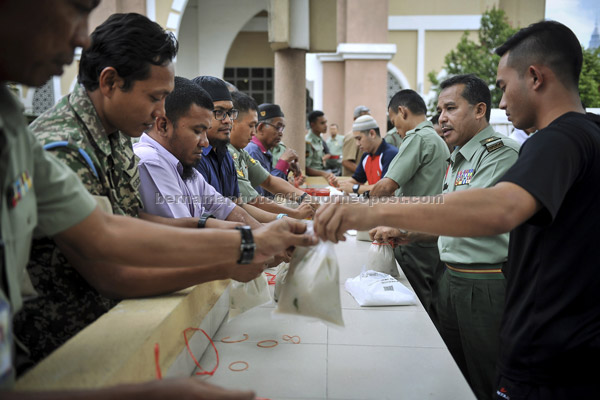
“Back in the 70’s out of 10 guys you will see 1 is Chinese but not now especially in the air force” – Willie (not his real name), 13-year Malaysian Air Force veteran
Captain (Rtd) Wan Hock Leong, one of the veterans we spoke to, cited the perceived strictness of the military as a reason why non-Malays, particularly the Chinese community, are reluctant to join the armed forces. However, there’s also the perceived career path to think about.
“…there’s also the possibility that the perception of the Chinese is that a career in the armed forces is too restrictive, or maybe even prescriptive in that there’s not much room for their talents to come into play.” – Capt (Rtd) Wan Hock Leong, for Cilisos.
When thinking about a career in the military, most people would probably imagine being either a simple soldier or an officer, following orders, shining boots and screaming profanities at new recruits. But the armed forces aren’t all soldiering and captaining. There are various corps with different functions in the armed forces, like engineering, medical and signals, and with the way warfare is changing in the way it is being fought (think more drones and satellites and less poking bayonets at someone’s kidneys), different kinds of talents are needed to keep up.
However, there are also those who had served in the military, who hadn’t qualified for pensions until recently, and live in hardcore poverty.
Soldiers aren’t paid much, but they’re paid enough
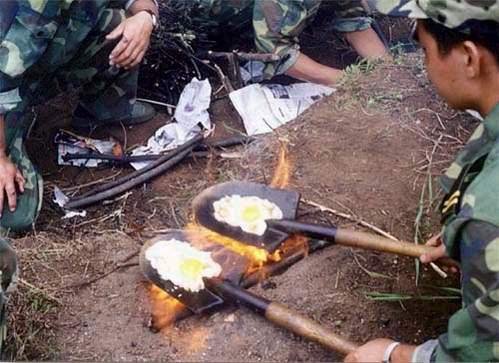
“It’s a blessing that I left otherwise I don’t think I can afford to have 4 children. The salary is next to s**t. During training we were paid only 60 ringgit and from then we move up slowly based on your rank. Today the rate might be a bit higher but still bad compare to outside life” – Willie
Capt Wan, on the other hand, served in the late 1960s as a 2nd lieutenant and earned RM365 a month. He admitted that you probably won’t be able to hoard a pile of money by working for the military, but pointed out that those who work in the armed forces in the first place wouldn’t be looking to make a living, as they would be starting a business instead. While businesses can either go well or fail, in the armed forces the income is much more stable.
“…the armed forces is not about making a living, but the armed forces will give a reasonable life to its personnel. We must also remember that when we serve in the armed forces, especially in the officer’s corps, we are serving the king, and we are serving the country, so that is more important than just the money. ” – Capt (Rtd) Wan Hock Leong, for Cilisos.
According to Wikipedia, recruits start out at RM800 a month, a ATM captain can earn between RM 3,855.00 – RM 9,924.00, while top-ranking generals can earn between RM 8,596.86 – RM 17,573.42,
Kungkung might disapprove a military career, but times are different

“You don’t make nails out of good iron, and you don’t make soldiers out of good men.” – old Chinese saying
This saying probably came from the time of the Song Dynasty in China, when soldiers were somewhat considered to be at the bottom of the social ladder as opposed to scholars, who were at the top. Regardless, the saying persisted today in Malaysia, and some had linked the saying as a part of a deep-seated cultural aversion that explains why Chinese youths are reluctant to join the military.
Even Capt Wan heard the saying back when he was about to join the military. According to him, there was a lot of talk within his community that joining the armed forces would be the lowest position for anybody to be in. But he dismissed the proverb as coming from a very different time in ancient China, and the situation back then is not the same as the present.
“I think the worry of the parents of those times was that when you join the armed forces, you’re selling your life. As a family, there’s a thinking that when your child goes into the armed forces, there’s a chance that they won’t come back. They may die in war. But that was a different time.” – Capt (Rtd) Wan Hock Leong.
Capt Wan further said that the armed forces would need to change that perception, as being in the military in modern day Malaysia is more or less like any other careers, with little hazardous work except for small skirmishes here and there.
As for the non-Malays’ negative perception towards the armed forces, that could mean a lot of things, but what we’ve heard the most of is that…
If you’re a non-Malay, your merits may not get you very far
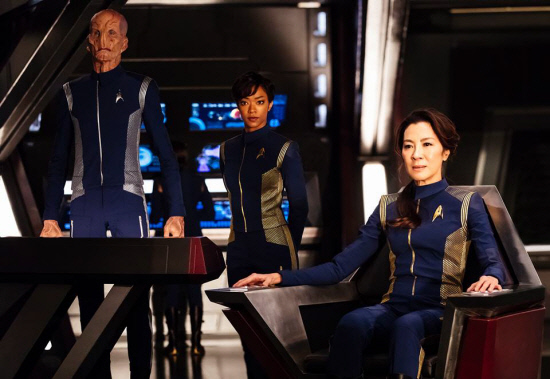
Capt Wan recounted to us an exchange that happened on his first day of service with his superior, an Englishman with the rank of a full Colonel.
“During my first day in the armed forces, my boss told me ‘Son, your progress in the armed forces will depend on your merit.’ So that’s how I perceived the armed forces in the beginning of my career in it. Your future will depend on your merit.” – Capt (Rtd) Wan Hock Leong, for Cilisos.
However, Capt Wan said that he left the army ten years later after the effects of the New Economic Policy (NEP) made its appearance in the military, following the incident on the 13th May 1969. Capt Wan felt that the NEP had limited his career prospects, and Willie, who served some years later, felt the same way after five years of service. He recounted some measure of distrust towards Chinese personnel, and how hard it is to get promoted.
“No matter how hard we work promotion is limited for the non-Malays… promotion is stagnant for the non because there is no quota. Most promotion will first go to the Malays and we have to wait for the senior non-Malays to retire, and only then there is only one vacancy waiting for us, and 5 candidates to fill that position… The highest a non-Malay can be promoted in the ATM back then is a one star general, nothing higher than that.” – Willie, for Cilisos.

The President of the National Patriot Association, Brigadier-General (Rtd) Mohd Arshad Raji had noted that there is a noticeable drop in the number of non-Malays in the armed forces within the years following the affirmative action policies (like the NEP), and how the policies created a rift among the different ethnicities in the armed forces.
“The government’s affirmative action policies of the 1980s had seeped into the military administration, and strange sayings like ‘orang kita’ had crept into the minds of military commanders. While many generals were sympathetic and caring towards everyone under their care, the little Napoleons in the ministry of defense – the civil servants with authority – made policies pertaining to promotion and enforced an unwritten regulation and a quota system regarding non-Malays.” – Brigadier-General (Rtd) Mohd Arshad Raji, for FMT.
The increasing Islamization of the military in the recent years didn’t help, either. Gen Arshad stated that more and more aspects of the military are becoming dictated by religious sensitivity, and this negatively affected the esprit-de-corps in multi-racial military units, making non-Malay personnel feel more alienated than ever. Not to mention the government’s recent announcement of placing Malaysian armed forces in Jerusalem, and the government indicating where their loyalties lie in that conflict. Considering all of these…
There’s a lot more to address besides a lack of patriotism
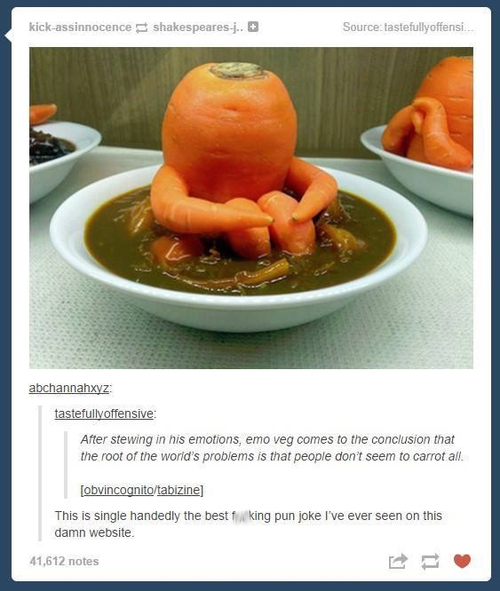
Right now, the government is encouraging the non-Malays to enter military educational institutions, but will it work? In the words of Hishammuddin Hussein, you can lead a horse to water, but you can’t force it to drink. So we will have to wait and see. In the meantime, we asked our veterans on what more could be done to get more non-Malays to join the military, and they came up with some interesting ideas.
Capt Wan suggested that in addition to going to public and private learning institutions to attract students to join the military, they should also bring along some non-Malay ex-officers from different corps and regiments. These people have gone through the military experience, and it would be helpful for them to explain the career progression of the different corps to potential recruits.
He also believes that the armed forces will have more success if they were to talk about a career in the military to secondary school students, particularly those in Form 4 or 5.
“I think this is the best level to look at… because not everyone will have the opportunity to go to a university. Some of them, they do not want to continue studying. They want to start working. And these are the kinds of people to focus on and to try to talk to and encourage. Show them that they have a choice to join the armed forces.” – Capt (Rtd) Wan Hock Leong
Capt Wan also talked about reviving something called the Kor Kadet, which existed back in his school days. It’s a co-curricular activity where about 30 to 40 students from each school learn about the Malaysian military, and they even organized yearly visits to a military unit, where students had the chance to fire weapons and closely see how the armed forces work. In fact, it was what inspired Capt Wan to pursue a military career in the first place, so he felt that it will be a good way to pique the students’ interest in a military career.
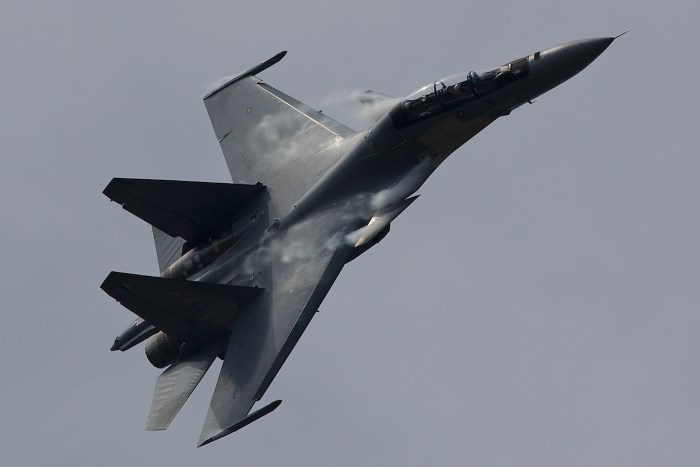
As for Willie, he believes that a policy change is necessary, and that promotions should be based on merit, regardless of race. He also calls for the highest ranks in the army to be opened to any race, as he believes that it will encourage more non-Malays to join the armed forces.
On the other hand, Brig Gen Toh Choon Siang, the chairman of the Army’s Chinese Community Committee, had dismissed the notion that non-Malays are unwilling to join the military because of poor promotion prospects, instead saying that the government needs to offer something enticing enough for them to join, which is what the government is doing.
“If you look at the benefits, in an effort to attract more non-Malays into the Armed Forces the government is actually offering a lot of incentives, allowances and education facilities. On being admitted to the National Defence University of Malaysia (UMK), all expenses are borne from hair to toe, they even get an allowance of RM1,600 and on leaving, become an officer,” – Brig Gen Toh Choon Siang, as reported by the Malay Mail Online.
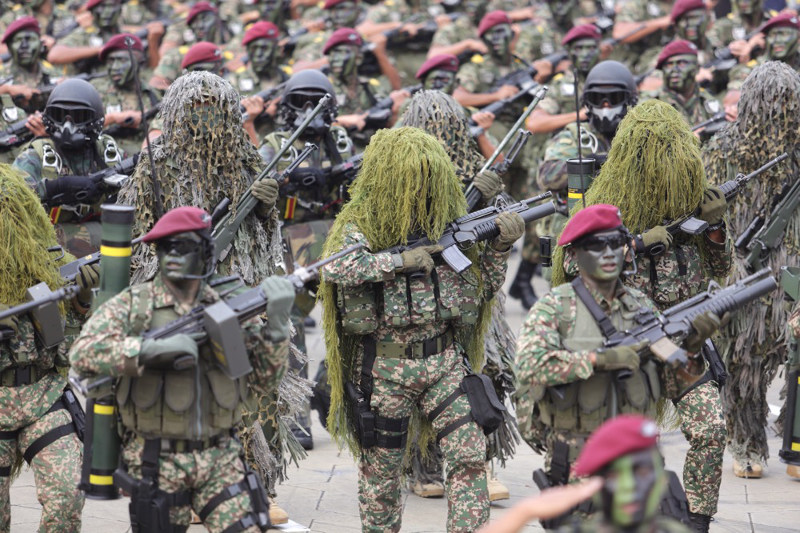
All things considered, the subject is quite a touchy one, and the Defence Minister Hishammuddin Hussein had since warned Gen Arshad for his statements, alleging them to be elements of hate politics meant to divide the government. The National Patriot Association, of which Gen Arshad is president, had defended their statement, saying that the comments were honest opinions from the heart, meant to help the authorities to come up with a more comprehensive strategy to attract the non-Malays to join the security forces.
“To solve the problem, we have to first recognize the problem. The intention here is not fault finding, rather to fully comprehend the grievances from the perspectives of the non-Malays, and help those in position make decisions for the betterment of our country.” – Brigadier-General (Rtd) Mohd Arshad Raji, for FMT.
- 3.1KShares
- Facebook2.8K
- Twitter26
- LinkedIn57
- Email69
- WhatsApp164

